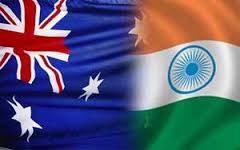
Foreign companies with Indian shareholders won’t have to pay taxes here for their worldwide income unless they are managed from India on an everyday basis. If these foreign companies are managed from outside India, whether or not they are promoted by resident Indians, they will have to pay taxes in India only for the income they earn in the country.
This major relaxation is being built into the place of effective management (POEM) rules being finalised by the finance ministry, government sources told FE. The POEM concept that was included in the I-T Act early this fiscal had raised fears among many multinational companies with Indian promoters or major shareholders that New Delhi would lay claim to taxes on their incomes attributable to other geographies.
While Indian-incorporated firms (Indian companies) are taxed at 30% plus dividend distribution tax (DDT), non-resident (foreign) companies are taxed at 40% on Indian income without DDT. Although the tax rates on foreign companies are higher, the prospect of subjecting the worldwide income to taxation here could have potentially hit many MNCs with Indian stakeholders.
The proposed lenient POEM rule, analysts said, would give the likes of UK’s Jaguar Land Rover (which has the Indian parent Tata Motors) a chance to convince the Indian tax authorities that the UK firm’s commercial decisions are taken by the local management there and avoid paying taxes for the income in the UK and elsewhere in India.
Similarly, foreign subsidiaries of state-owned oil companies such as ONGC Videsh’s Imperial Energy incorporated in Cyprus and ONGC Nile Ganga doing oil exploration in Sudan, Syria and Venezuela can potentially show that their managerial and commercial decisions are ‘in substance’ made at the local level although OVL, the Indian holding company, is under the direct administrative control of the government of India. The same is true for HPCL’s Singapore subsidiary Prize Petroleum International.
“Putting a management in place is a shareholder decision, not a management decision. Promoters getting into any other role would amount to overstepping shareholder rights, going by the strict interpretation of law. The POEM as a principle must cover only management decisions,” said Rahul Garg, leader, direct tax, PwC India.
According to experts, seeking permission from an Indian parent on a decision taken by an overseas subsidiary to see if it is in line with the global policy of the parent may not ordinarily amount to the parent exercising management control, unlike the parent passing on a centrally taken decision to the foreign associate. However, where the senior management of foreign associates of Indian firms are based in India or have common board members based in India, the overseas entity may find it hard to prove that management decisions are taken from outside India. Also, foreign associates of Indian companies lacking skilled managerial personnel or do not assume business risks on its own, could have a tough time convincing the taxman in India that they are not Indian residents.
Prior to the Finance Act, 2015, a company was considered an Indian resident if its control and management were wholly in India throughout the financial year. Since some Indian companies sought to avoid resident status and taxes on their worldwide income by holding one or two board meetings outside India, the government changed the residence definition saying that any company, the ‘place of effective management’ of which is in India, would also be a resident company. Tax residence is a place from where key management and commercial decisions necessary for running the company are, in substance, made. According to experts, this OECD definition of tax residence relies on the substance of the organisation’s structure than its legal form. The government is bringing out clarifications as there is not much global guidance on the concept.
Points to note:
* Mere shareholder rights with Indians won’t result in resident status
* Only managerial decisions taken here will make foreign firms Indian residents and liable to pay tax for entire global income here
* Foreign firm has to prove management independence to avoid tax residence if board members are common with that of Indian ones.
Source: http://www.financialexpress.com/article/economy/relaxed-tax-residency-rules-to-help-mncs/156692/




